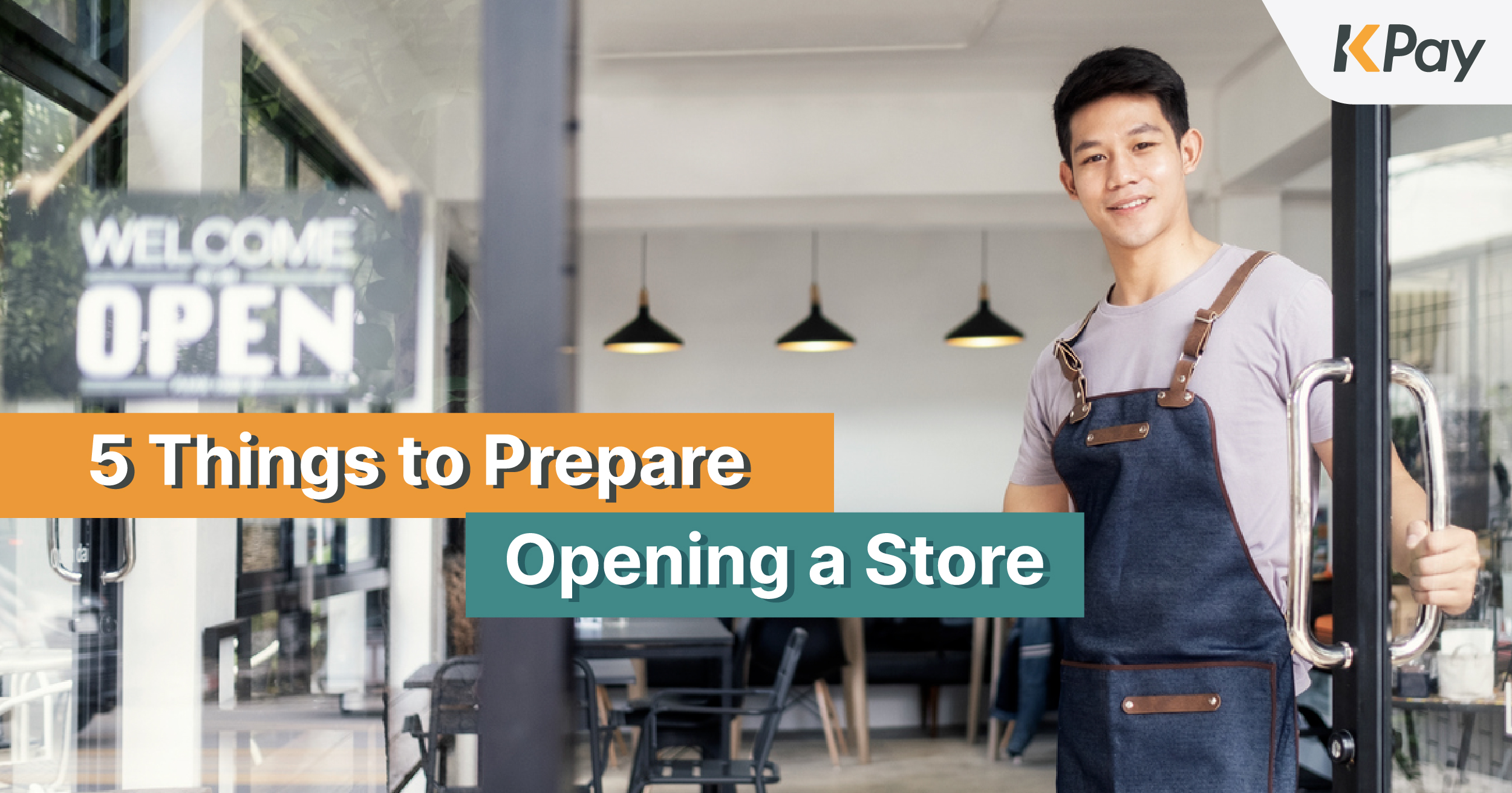
A business cannot count merely on enthusiasm to succeed. Once you are ready to take that leap, you need to continuously put effort into your goals in achieving a successful business. There are various practicalities you need to face and handle while experiencing all the ups and downs of your business. Only through great preparation and mindset can you go further on the path of entrepreneurship.
Think you are ready? Check out the following tips to make a good start.
First, what type of shop would you like to open? Decide on the type of products and services you would like to offer, as this will directly impact your target audience, business model, status and reputation within the market.
Next, conduct market research to study the market demand, your target consumers and their behaviour. If the market is already saturated with an abundance of companies selling similar of products or services, defining the unique selling points (USPs) of your products/services will help your business stand out in the sea of competitors.
Figure out your target market. Understand the needs, characteristics, and consumption patterns of your potential customers to divide the market into smaller groups, known as market segmentation. Evaluate the potential of each segment. Pick one that projects the highest returns as your primary market, so that you can custoise your products/services and satisfy the needs of your customer base with them. The more differentiated, segmented, and custoised your products/services get, the more value and market competitiveness they will possess.
After settling on the choices of your products and target audience, it is time for you to choose the store location. Analyse your competitive edge, and set up a shop in a less competitive area. As your business and brand matures, you can start gradually expanding your business. Generally speaking, below are the 5 factors that you can consider when choosing an ideal location for your store:
- The surrounding environment
A busy area, where the transportation terminal is nearby and the population is dense or where other similar stores are concentrated (i.e. "Sneakers Street"), is a far better choice for setting up a store in comparison to a remote area or on a basement level. - Traffic
Consider not only the convenience for the customers but also the accessibility for delivery and logistics. - Nearby support facilities
For instance, opening a snack shop with schools in the nearby neighbourhood will certainly bring an advantage to your business. - Foot traffic
Opening a store in high foot traffic and dense areas can increase brand awareness, generating more sales. - Income level of target customers
The spending power of customers in the selected area will affect the pricing, type, and nature of the products.
Additionally, the requirements imposed on your business and licences, such as the store area, water and electricity supply, fire safety, and hygiene facilities, will play a key part in your decision on store location and renovation choice. They must meet the required standards under the regulations. Also, it is crucial to enure that there are no unauthorised building structures.
After deciding on an ideal location for your shop, the next step will be signing a tenancy agreement. As a tenant, it is imperative to take careful notes of the terms to protect your rights.
Pay extra attention to terms related to the rent-free period, rent payment period, and overdue payment. Find out if the property owner will be responsible for payment of rates and utilities like management fees, water charges, and internet service fees, and whether you need to restore the premise to the previous condition upon the completion of the lease period or the refund of rent payment.
The above terms will influence your budget directly. If you are unclear on any of these terms, do check with the property owner and real estate agent.
Funding is essential to a new business. Preparing a budget plan certainly helps take your business to the next level, avoiding unnecessary losses and planting the seed for future expansion.
- Application fees for licences
According to the information from the Inland Revenue Department, any form of trade, including craftsmanship, commerce, profession, and any other activities, that is operated for gain, must apply for the Registration of Business.
The person in charge must obtain licences relevant to the nature of your business. For example, a restaurant must apply for the Restaurant Licenese; a snack shop or bistro must apply for the Light Refreshment Restaurant Licence; A bakery must apply for the Bakery Licence. The length of the verification normally takes between 2 months to a year, depending on the licence’s requirements. Spare enough time to prepare and wait for the approval to avoid delay in opening.. - Product Development, production, logistics, and inventory cost
Draft a monthly budget and expenses plan to determine the pricing for your products. - Renovation fee and facility cost
Shop renovation in certain industries is regulated by the laws of Hong Kong. For the food and beverage industry, the ceiling heights, hygiene facilities, fire protection, and facilities for drinking water and wastewater discharge of each restaurant must meet the required standards under the regulations. - Listed terms of rent in advance and deposit in the tenancy agreement
In Hong Kong, shop tenants normally will have to pay a 3-month rental deposit and a monthly rent in advance. Formulating a budget plan beforehand is and therefore, necessary to ensure that there is sufficient funding to renovate, order goods for inventory, and cover other expenses. - Working Capital (Water, Electricity, Gas, Salary, Rent, and Promotion Costs)
Aside from calculating monthly working capital, you have to reserve an amount of budget for promotion in the initial phase of your business. Run a pre-opening promotion, give away small gifts, or utilise digital marketing tactics to increase brand awareness.
A fully functional Hong Kong point of sale system (POS system) is the final item on your checklist when opening a shop in Hong Kong. Obtaining the POS system is thereby the most integral part of this process. With the increasingly popularised use of smartphones and the launch of consumption vouchers by the government, people are getting used to paying with e-wallets. Over 3 million people have registered for e-payment accounts, and e-consumption has technically become a trend. Earlier there was a survey that indicated that the availability of e-payment would factor into the likability of a consumer shopping at a store. A Hong Kong point of sale system is simply an essential item any business owner in Hong Kong must acquire before opening a shop.
E-payment system allows customers to select a suitable payment method and earn discounts offered by the relevant payment service providers such as credit card double points and instant discount vouchers, enlarging your customer base and boosting your sales. Implementing an electronic payment system helps business owners easily manage and audit accounts, so their primary focus can be on planning business strategies.
For any small enterprise in Hong Kong, questions about whether their shop is capable of utilising an HK POS system without an extensive sales system may arise. But the answer is simple - they can use it! There are a lot of e-payment service providers available on the market. The merchants can install a card machine to enter the amount of the payment to be received. Then, select the payment method their customer chooses. These card machines usually support multiple payment methods, such as Visa, Mastercard, UnionPay, Alipay, WeChat Pay, BoC Pay, and even Octopus card. The transaction process and record will be transparent, avoiding any errors and losses of money and sales caused during the exchange.
The POS system is no longer exclusively used by large enterprises or chain stores. Small and medium enterprises, limited or unlimited companies can all make use of a POS system. KPay offers a multifunctional e-payment platform, swiftly digitising your business. Highly flexible, supporting every e-payment method, and capable of sorting out bills and collecting tips, KPay POS system is a necessary Hong Kong POS system for any physical store. As a Hong Kong POS system, it streamlines the transaction process for local businesses, providing a real-time record of all the transactions and making it easy for merchants to verify each account. Also, KPay POS system has a mobile app version, meaning that merchants can manage their accounts anywhere and anytime through a mobile HK POS system gaining much needed insights into the market trends, consumption patterns, and the needs of the customers to develop their business.

